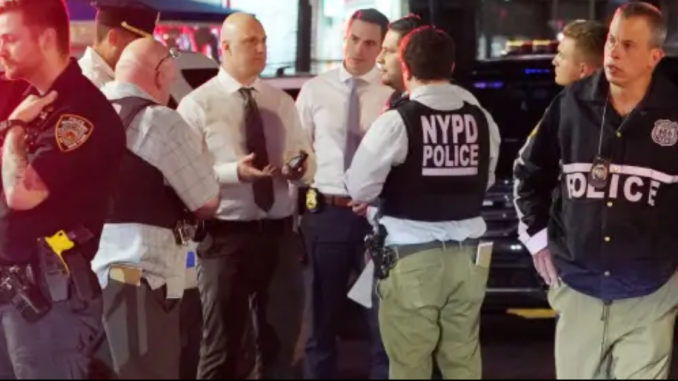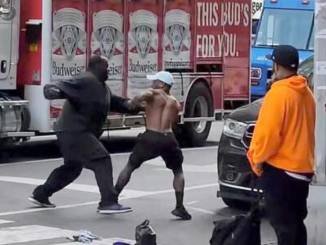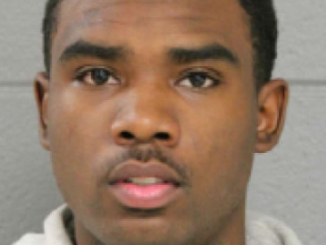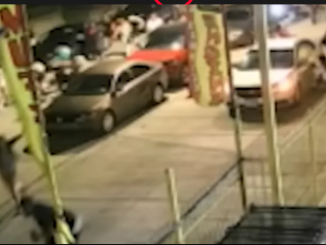
Yes, this is the most lawless New York City has ever been.
After I asserted just that at last month’s House Judiciary Committee hearing on violence (though I limited it to my 71 years in the city), the media and many Democrats rushed to dismiss my claims.
Murders were worse 30 ago, they noted.
Yet cherry-picking stats obscures the disorder and fear overwhelming the city I love.
Unpunished crime, drugs, homelessness, businesses operating illegally and unregulated streets are the new normal.
Combine this with politicians who have no interest in punishing criminals, and you get unprecedented lawlessness and a public perception that you can be assaulted and even killed at any moment.
Start with the stats: Major crime is likely underreported due to undercharging.
If an NYPD officer is accused of overcharging a perp, it can hurt the officer’s career.
City cops know prosecutors are looking to reduce charges.
Indeed, progressive DAs in the city are so bad, even Gov. Kathy Hochul has criticized them for undercharging those in custody.
Gov. Kathy Hochul has criticized progressive DAs for undercharging those in custody.
Plus, prosecutors must dismiss a case when they can’t comply with bail reform’s discovery laws.
Manhattan DA Alvin Bragg’s infamous “Day One Memo” outlined a list of crimes he refused to prosecute.
Yet he chose not to prosecute an additional 1,800 cases due to a lack of funding.
I also suspect technology and medical advancements help first responders save the lives of more gunshot victims than 30 years ago, which can lower murder rates.
But that doesn’t produce a feeling of law and order in our streets.
Even the liberal New York Times editorial board admitted that “the atmosphere of unease and despair in many parts of the city today is real.”
Nor do mere stats capture the number of times a law-abiding New Yorker must watch an addict use drugs in public.
In 2021, the city saw its worst year ever for overdose deaths, 2,668.
Since 2019, drug deaths are up 78%.
As we ride the subway and walk the streets, we bear witness to addicts lying in public spaces.
Back when I served on my local Community Board during the crack epidemic, leaders tried to get users treatment while locking up the dealers.
Now, politicians encourage this behavior at “safe sites.”
Of course, many addicts are homeless, as are others for economic and mental-health reasons.
Almost 70,000 New Yorkers are without permanent places to live.
After cleaning up parks and subways during the Giuliani and Bloomberg days, we are ceding public spaces back to the homeless.
And along with that, we are seeing more open drug use, random acts of violence and general disorder.
If you’re driving your car to avoid public transportation, you also face more dangers: We never had so many cars with illegal paper plates and deformed license plates meant to evade cameras.
Motorcycles, e-bikes and e-scooters ignore basic traffic laws; the NYPD even admits it doesn’t chase aggressive drivers.
Lawbreakers know this, so they drive recklessly without fear of being ticketed, let alone arrested.
It’s almost impossible to walk our streets without seeing an e-scooter run a red light or drive on the sidewalk.
But it’s no different on the subways: Jump the turnstile and evade fare.
Storeowners fear flash-mob robberies.
No one has ever lived in a time when pharmacies lock up everything from over-the-counter medicine to laundry detergent.
Manhattan DA Alvin Bragg’s infamous “Day One Memo” outlined a list of crimes he refused to prosecute.
No stat tells you the number of times a pharmacy opts not to call 911 because it knows police will never catch the robbers.
Meanwhile, 1,400 illegal cannabis shops operate in the open.
Most of New York’s population either did not live here in the “bad old days” or are too young to remember.
But New Yorkers know our streets aren’t as safe as they can and should be.
They smell the pot in the air, see the homeless in the streets and can tell you about a time they were afraid of being assaulted.
So: What to do?
Well, start with bringing back the broken-windows approach to crime prevention.
Focus on quality-of-life crimes.
Visionaries, like former Police Commissioner Bill Bratton, helped mayors from all political backgrounds establish order in this way.
We can do it again.
But most of all, those with power must acknowledge reality and truly commit themselves to restoring law and order in the city we love.
* Article From: The New York Post


